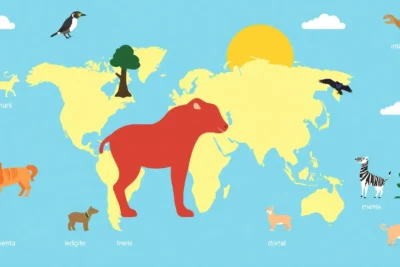
The Experiment of Echo Lake
hace 1 año · Actualizado hace 1 año
Este test de nivel C1 está diseñado para estudiantes que buscan perfeccionar su comprensión lectora a través de una narrativa envolvente y desafiante. Consta de 25 preguntas que pondrán a prueba tu habilidad para interpretar ideas complejas, analizar a fondo personajes y captar matices esenciales en el texto.
Acceder a más Test de Inglés Gratuitos
Historia
High in the isolated mountains of Alder Ridge, there lay a body of water shrouded in mystery: Echo Lake. The lake’s surface was impossibly still, its depth unknown. Scientists had long been fascinated by its unique acoustic properties—any sound made near its shores was amplified and distorted, reverberating endlessly.
Dr. Evelyn Harper, a leading physicist specializing in wave mechanics, had been granted permission to lead a team to study Echo Lake. Her objective was to determine if its unique properties were natural or the result of an unknown phenomenon.
Evelyn’s team consisted of experts in various fields: Dr. Marcus Lane, a geologist; Sofia Ellis, an acoustics engineer; and Caleb Wright, an experimental chemist. They set up camp near the lake and began their investigation.
On the first night, Evelyn recorded her observations. “The lake’s surface behaves like a perfect acoustic mirror. Sound waves bounce back without losing energy. It’s as though the lake absorbs and amplifies them.”
Their initial experiments involved creating controlled sounds—clapping, shouting, even musical notes—and analyzing how the lake responded. The results were astonishing. Not only did the echoes persist longer than expected, but they also seemed to form patterns, as if the lake were “speaking” in response.
Sofia suggested using a frequency scanner to detect any hidden signals. To their amazement, the scanner picked up faint oscillations. “It’s almost like a heartbeat,” she said. “But lakes don’t have heartbeats.”
As the days passed, the team began noticing strange occurrences. Their voices would echo back with slight variations, as though the lake were imitating them. Caleb joked, “Maybe the lake’s alive.”
Evelyn, however, wasn’t laughing. She began to suspect that Echo Lake was more than a geological anomaly. One evening, she proposed a radical theory. “What if the lake is interacting with us? Not just reflecting sound, but processing it?”
Her colleagues were skeptical but agreed to test her hypothesis. They set up an experiment using coded sound waves. Evelyn sent a sequence of tones into the lake and waited. Minutes later, the lake responded with a variation of the same sequence.
“It’s communicating,” Marcus said, his voice filled with disbelief.
Encouraged, the team developed a more complex sequence, incorporating mathematical patterns and frequencies. The lake’s response was even more intricate, suggesting a level of comprehension.
But with each interaction, the lake’s behavior became increasingly erratic. Waves formed on its surface despite the absence of wind, and the echoes grew louder and more dissonant. Caleb noted that the air around the lake felt charged, like the moments before a storm.
One night, Evelyn awoke to a low hum reverberating through the camp. She stepped outside to find the lake glowing faintly. The hum intensified, and a sudden pulse of energy knocked her off her feet. When she regained consciousness, she found her colleagues unharmed but shaken.
“What happened?” Sofia asked.
“The lake reacted,” Evelyn said. “It’s absorbing too much energy. We’ve triggered something.”
The team debated whether to continue their experiments. Marcus argued that they were venturing into dangerous territory, while Evelyn insisted they were on the brink of a groundbreaking discovery.
In a final attempt to understand the lake, Evelyn devised a risky experiment. Using an array of synchronized sound emitters, they would send a complex signal designed to test the lake’s limits. “If the lake truly processes information, this will push it to respond with something definitive,” she said.
The experiment began at dawn. As the signal played, the lake’s surface shimmered, and the echoes grew deafening. Suddenly, a massive column of water rose from the center, twisting and spiraling. The sound transformed into a deep, resonant tone that seemed to vibrate through their very bones.
Then, as quickly as it began, the phenomenon ceased. The lake returned to its calm state, and the echoes faded. In the silence that followed, the team reviewed their data.
Evelyn’s face was pale as she analyzed the results. “The patterns in the lake’s response—they’re not random. They resemble neural activity.”
“You’re saying the lake has a mind?” Marcus asked, incredulous.
“Not a mind as we understand it,” Evelyn replied. “But it’s processing information. It’s alive in a way we’ve never encountered.”
The implications of their discovery were staggering. Echo Lake wasn’t just a natural wonder—it was a sentient entity, capable of interaction and response. The team decided to end their experiments, recognizing that further interference could harm the lake—or themselves.
Evelyn published her findings, sparking global debate. Some hailed the discovery as the next frontier of science, while others feared the ethical implications of interacting with such an entity.
In the years that followed, Echo Lake was declared a protected site. Evelyn continued her research, but from a respectful distance, knowing that some mysteries were better left unsolved.
The Experiment of Echo Lake became a symbol of the fine line between curiosity and caution, a reminder that humanity’s greatest discoveries often come with unexpected responsibilities.
Preguntas
Si quieres conocer otros artículos parecidos a The Experiment of Echo Lake puedes visitar todos nuestros artículos de C1.
Deja una respuesta


Artículos que te pueden interesar